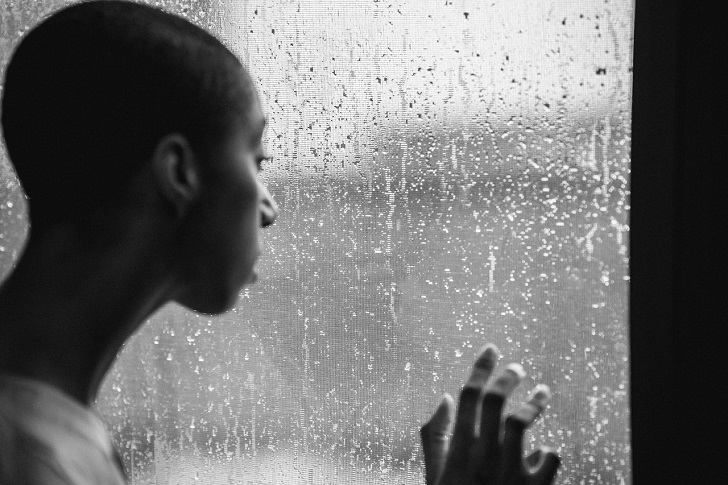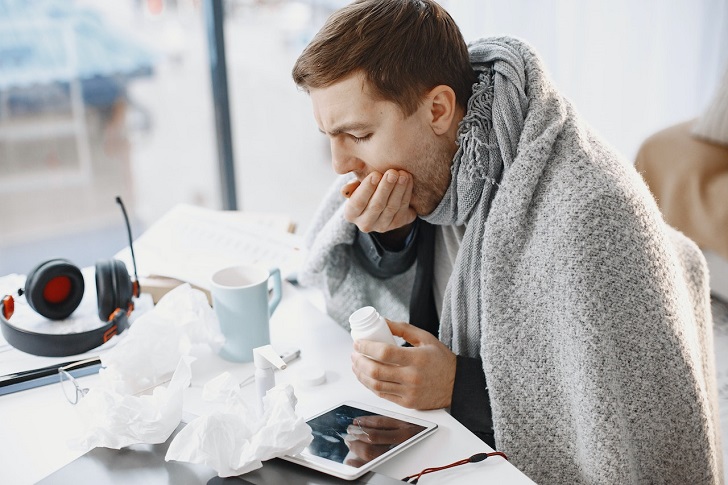
Fall and Winter Illnesses | How to Be Prepared

As the days grow shorter and temperatures drop, we bid farewell to the warm embrace of summer and welcome the beautiful yet challenging seasons of fall and winter. While the changing foliage and snow-covered landscapes bring their kind of magic, these colder months also bring a host of seasonal illnesses.
From the common cold to the winter blues, it’s essential to be prepared and proactive in safeguarding your health during this time. In this article, we will delve into some of the common fall and winter illnesses and provide you with valuable insights on how to stay healthy and resilient throughout these seasons.
The Common Cold Strikes Back
The common cold remains one of the most prevalent fall and winter illnesses. The colder weather, increased time spent indoors, and close contact with others can all contribute to the spreading of cold viruses.

Andrea Piacquadio/ Pexels | Fall is the peak time for many viral illnesses
Prevention Tips:
- Maintain good hand hygiene by washing your hands with soap and water frequently.
- Stay hydrated and maintain a balanced diet rich in vitamins and minerals.
- Cover your mouth and nose when coughing or sneezing to prevent the spread of germs.
- Consider using a humidifier to keep indoor air moist, as dry air can make you more susceptible to colds.
Bronchitis: The Persistent Cough
Bronchitis, an inflammation of the bronchial tubes, tends to be more prevalent during the colder months. It often follows a cold or respiratory infection and is characterized by a persistent cough, sometimes accompanied by mucus production and wheezing.
Prevention Tips:
- Avoid exposure to smoke and other respiratory irritants.
- Practice good hand hygiene and avoid close contact with individuals who are sick.
- Consider a flu shot to reduce your risk of getting sick and developing bronchitis.
- If you smoke, seek support to quit, as smoking is a significant risk factor for bronchitis.

Klaus Nielsen/ Pexels | SAD is a serious disorder that can lead to clinical depression.
Winter Blues: Seasonal Affective Disorder (SAD)
Seasonal Affective Disorder (SAD) is a form of depression that typically occurs in the fall and winter months when daylight hours are shorter. Symptoms include persistent sadness, fatigue, and changes in sleep patterns.
Prevention Tips:
- Spend time outdoors during daylight hours to maximize exposure to natural light.
- Regular physical activity boosts your mood and reduces feelings of depression.
- Consider light therapy, which involves exposure to a special lightbox that mimics natural sunlight.
- Seek support from a mental health professional if you suspect you may be experiencing SAD symptoms.
Flu: A Formidable Foe
Influenza, commonly known as the flu, remains a formidable foe during the fall and winter. It’s highly contagious and can lead to severe illness and complications. Each year, the flu vaccine is updated to target the most prevalent strains, making it an essential preventive measure.

Gustavo Fring/ Pexels | Prevention is better than cure
Prevention Tips:
- Get a flu shot annually. Vaccination is the most effective way to protect yourself and your community.
- Practice good respiratory hygiene by covering your mouth and nose when coughing or sneezing.
- Avoid close contact with individuals who are sick, and stay home if you’re unwell to prevent the spread of the flu.
- Boost your immune system with a healthy diet, regular exercise, and adequate sleep.
Dry Skin and Eczema
The drop in humidity levels during the colder months can lead to dry, itchy skin and exacerbate conditions like eczema. It’s crucial to take steps to keep your skin healthy and comfortable.
Prevention Tips:
- Use a gentle, moisturizing soap and lukewarm water when bathing.
- Apply a rich moisturizer immediately after showering to lock in moisture.
- Avoid long, hot showers or baths, as they can strip your skin of essential oils.
- If you have eczema, follow your dermatologist’s recommendations for managing your condition.
More in Treatment
-
`
5 Reasons Why Dad’s Side of the Family Misses Out
Family bonds are intricate and multifaceted, often creating a unique tapestry of connections. However, many people notice a peculiar trend: stronger...
July 12, 2024 -
`
A Quick Guide on How to Get Short-Term Disability Approved for Anxiety and Depression
Living with anxiety or depression poses unique challenges, particularly in the workplace, where stress can exacerbate symptoms. For many, short-term disability...
July 5, 2024 -
`
Why Do People Feel Sleepy After Eating?
Is feeling sleepy after eating a sign of diabetes? Well, not directly. There are many reasons why you feel drowsy after...
June 20, 2024 -
`
What Is High-Functioning Depression? Symptoms and Treatment
High-functioning depression may not be a term you hear every day, but it’s a very real and challenging experience for many....
June 13, 2024 -
`
Kelly Clarkson’s Weight Loss Ozempic Journey – Debunking the Rumors
In a refreshing moment of transparency, Kelly Clarkson, the beloved singer and talk show host, sheds light on her remarkable weight...
June 3, 2024 -
`
What Is the Best Milk for Gut Health and Why?
In recent years, the milk section at the grocery store has expanded far beyond the traditional options. While cow’s milk has...
May 30, 2024 -
`
Do Dental Implants Hurt? Here’s All You Need to Know
When you hear “dental implants,” you might wince at the thought of pain. But do dental implants hurt as much as...
May 24, 2024 -
`
5 Key Differences Between A Psych Ward & A Mental Hospital
Curious about the differences between a psych ward and a mental hospital? You are not alone. With the mental health conversation...
May 16, 2024 -
`
It’s Official! “Selling Sunset’s” Christine Quinn & Husband Christian Dumontet Are Parting Ways
Have you ever found yourself unexpectedly engrossed in the personal lives of celebrities, especially when their stories take dramatic turns? Well,...
May 9, 2024










You must be logged in to post a comment Login